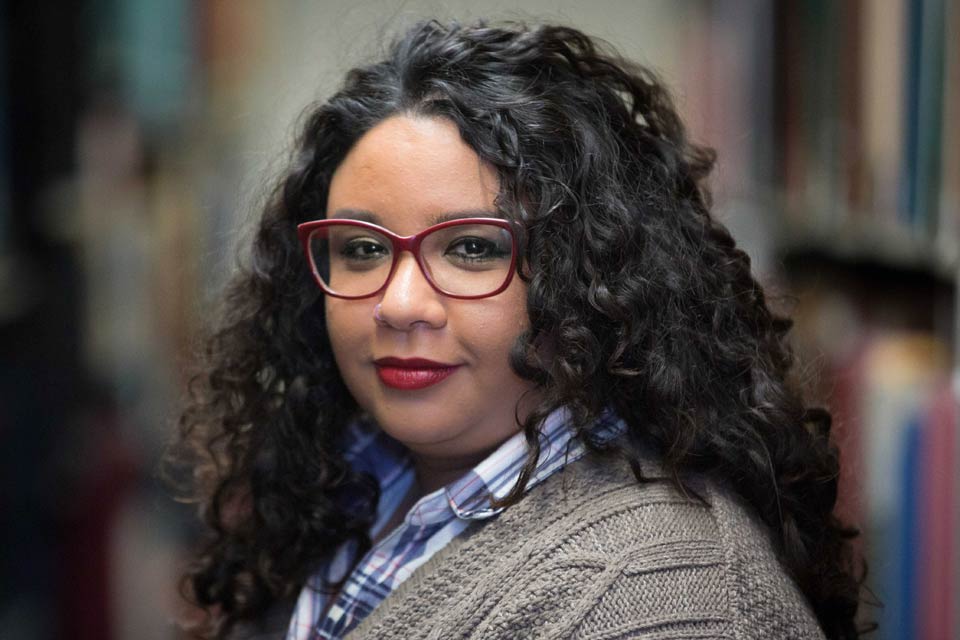Maya Dworsky, MA'16, Studies Childhood and Race Through the Lens of Children’s Literature

February 17, 2017
By Helen Wong | Graduate School of Arts and Sciences
Maya Dworsky, MA'16, studies the intersectionality of childhood and race through the lens of children’s literature. A graduate of the Comparative Humanities (MACH) program, Maya's capstone project, "White Kids Fight Dragons, Black Kids Fight Drugs," dealt with the lack of heroes of color in children's transformative literature. For the project, she conducted extensive textual research and interviewed many readers and educators of color.
Maya grew up in the small town of Atlit in northern Israel, surrounded by a community that encouraged art and activism. After dropping out of high school to pursue a career in music, Maya hitchhiked across the United States as a street musician for a while before coming to a stop in Eugene, Oregon. There, Maya began working at the local Boys and Girls Club. She became an active member of the community and discovered in herself a newfound appreciation of academia.
After two years at a local community college, she transferred to the University of Oregon, where she pursued degrees in Sociocultural Anthropology and English Literature. Maya’s undergrad work revolved around the construction of pedagogical narratives in children’s literature and their relation to the formation of national, ethnic, and citizen selves. As part of the MACH program, Maya continued her studies in this area. “I first became interested in this topic as a little kid trying to find books about people like me, and then later as an educator trying to find books for my students to read and find themselves in,” said Maya.
After completing her undergraduate studies, Maya applied for a number of creative writing MFA programs. As she was finishing up her applications, she received an email from the MACH program at Brandeis. “I read up about the program and the faculty and began to get excited about the idea of going back to school,” said Maya. “At this point I still hadn't decided if I wanted to continue down the path of Anthropology or Literature, and I realized that a program like MACH would be a good place to work that out. I applied, was accepted, and the rest is history.”
As Maya conducted the ethnographic research for her capstone project, she realized that "Anthropology provided the theoretical framework I needed in order to engage with my research topic in the manner it deserved,” said Maya. “The MACH program was the perfect place for me to hone my thinking and theoretical base. I took classes in Cultural Anthropology, Critical Race Theory, and of course the MACH seminars themselves.” Maya is currently enrolled in Brandeis’ PhD program in Anthropology and is a Schusterman Scholar in the Schusterman Center for Israel Studies.
In the MACH program, Maya found a welcoming community with supportive faculty across different departments. “Dr. David Powelstock was extremely supportive of my research topic and challenged my thinking in many ways,” Maya said. “And Dr. Rajesh Sampath introduced me to theory in an unprecedented way that still does and forever will benefit my academic work, as well as providing me with guidance, support, and now inestimable friendship.”
For Maya, MACH was an excellent fit: “If you know you're interested in something but don't entirely know how you want to study it, or if your interests are so wide they cannot be contained by a single discipline, or if your brain could do with a bit of a rattle, MACH is a good place for you.”






